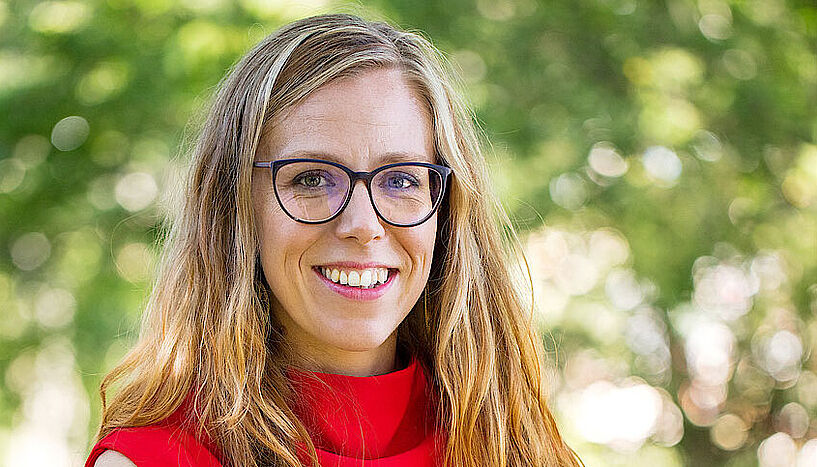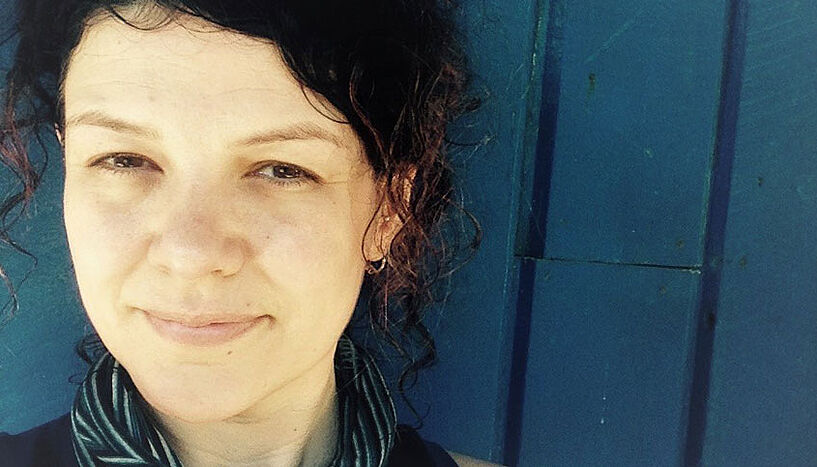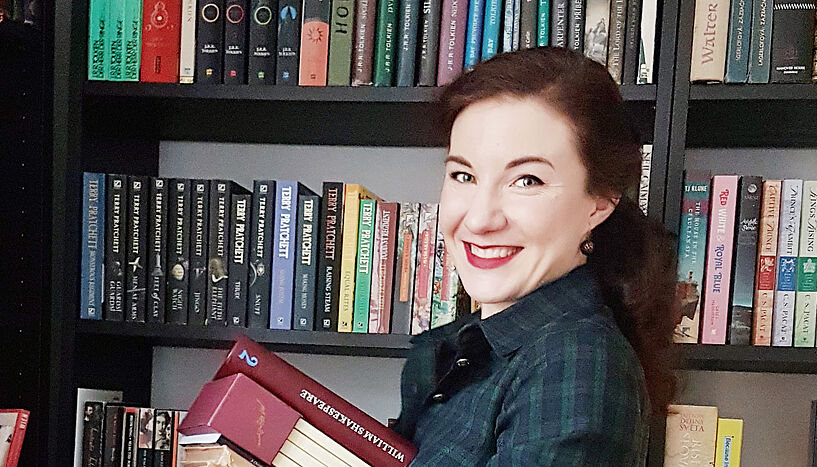REWIRE fellow Rosamund Johnston: "By looking at technology you can understand power."
| 08. September 2021
REWIRE fellow Rosamund Johnston (© Tomáš Dittrich)
Rosamund Johnston is a linguist and historian. For her REWIRE project she investigates Czechoslovakia's arms trade during the Cold War. She told us about her academic journey from being a student of Slavonic studies in Oxford to working with the radio archives in Prague, and completing PhD in New York, and how reporters in Africa helped her find her research topic.
It started with a foreign language
Rosamund Johnston decided to learn a Slavonic language because she had the feeling that she barely knew anything about this part of Europe. After completing her bachelor’s degree in Czech, she fed her curiosity by becoming a journalist and working at the English section of Czech Radio. This is where she started digging in the archives – which she has been doing ever since.
"I really wanted to acquire some methods for working with these sources in the radio archives, I wanted to do it right", Johnston said about her decision to return to university and enrol on a doctoral programme in history after some years. "I loved working with the sound archive, so my plan was to use these sources to tell the history of Czechoslovakia through the technology of radio in my PhD thesis." While writing her thesis and going through reports from around the globe, the idea for her REWIRE project was born.
REWIRE – Reinforcing Women in Research
The objective of the recently launched REWIRE funding programme for female postdoctoral researchers at the University of Vienna is to promote women in research. 16 promising female researchers from different disciplines received REWIRE fellowships. They enable them to conduct research in Vienna for a period of three years and support them in their academic career progression. uni:view will present short portraits of some of the researchers and their projects.
In particular, correspondents based in Africa in the 1960s reporting on the relationship between Czechoslovakia and African states caught her attention. "They were basically telling the story of arms sales. And this was a taboo! There were no reports on this issue until 1968, when censorship was lifted. This was when people started to discuss publicly that Czechoslovakia was one of the major arms dealers in the socialist bloc, dealing arms to non-aligned countries, and to what was then called the Third World."
It continued in archives of former socialist states
"I realized that it was a tremendously important story for understanding the history of Czechoslovakia and of the Cold War." The fact that this small country was one of the top arms dealers throughout the Cold War inevitably shaped social relations, the state’s economy and its ties to other states.
Therefore, in her REWIRE project Comrades in Arms: A Global History of Czechoslovakia's Weapons Industry, 1954-1994 Johnston focuses on Czechoslovakia's arms trade to understand the country's global linkages and international influence. "By looking at technology and at the ways that people negotiate the production, use and ownership of technology, you can understand power and how power works at a state level." She points out two different narratives of the Cold War: “eventlessness” or even stagnation in Europe on the one hand and conflict beyond Europe, on the other. "My project links these two stories. It shows how conflict elsewhere actually led to a certain amount of stability and social cohesion in Czechoslovakia."
Rosamund Johnston is one of the 16 REWIRE fellows at the university of Vienna. Her project Comrades in Arms: A Global History of Czechoslovakia's Weapons Industry, 1954-1994 is based at the Research Center for the History of Transformations. (ak)



